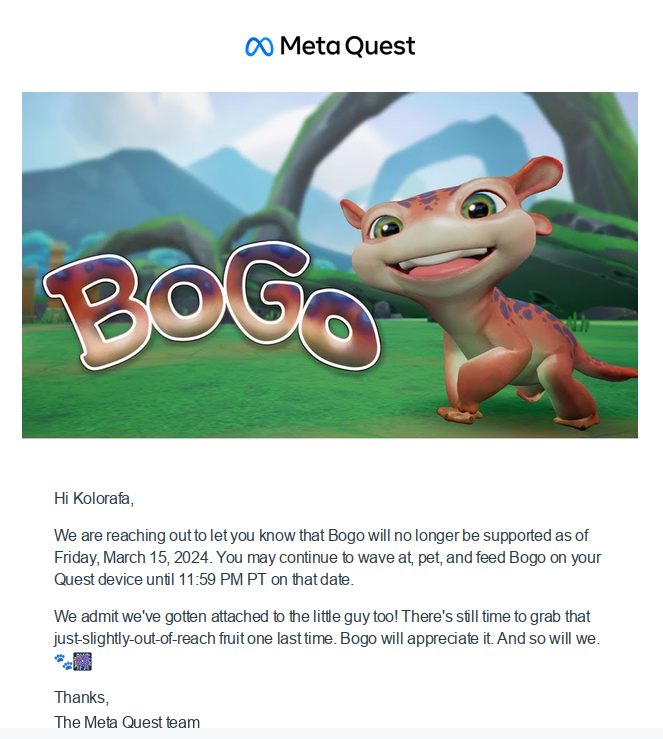This should be illegal, companies should be forced to open-source games (or at least provide the code to people who bought it) if they decide to discontinue it, so people can preserve it on their own.

This should be illegal, companies should be forced to open-source games (or at least provide the code to people who bought it) if they decide to discontinue it, so people can preserve it on their own.

After reading the rest of your comment, you are reading the wrong thing from it, the physical parts of the amusement park would be the extant binaries you already have. They still run the same as they did before, but without maintenance they will deteriorate and become non-functional or only partially operational. In an online system there are server bits that might not be available to the end user and those pieces also need an operator.
To make a slightly more specific analogy, with a water park we could imagine a separate water treatment facility that would need to be run to keep the water in the water park safe. That treatment facility could also have plans and schematics.
The actual facilities in these cases are not independently valuable in the software case. It’s the plans and schematics (the source code) that has value… but in both cases you only need the facilities and operators/maintenance to allow people to attend the water park/play the game.
Could the game company also give away a physical treatment plants so that an independent organization could buy their own servers and run their own game servers so that they could still play in their own private water parks? Sure.
Should they? Maybe. But it’s specifically the entitlement to the plans/schematics that gets me…
I understand the point now. Thank you! Good explanation!